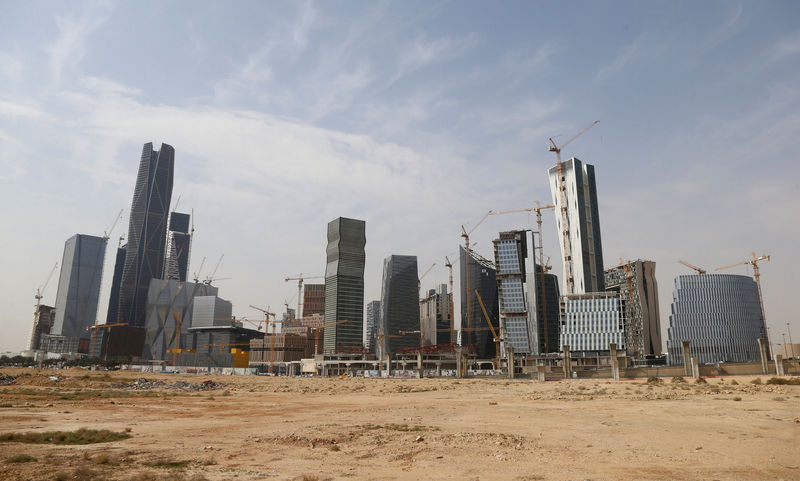By Andrew Torchia and Marwa Rashad
RIYADH (Reuters) - The Saudi Arabian government believes it can raise around $200 billion in the next several years by selling stakes in state enterprises ranging from hospitals to airports and grain silos.
Vice Minister for Economy and Planning Mohammed al-Tuwaijri said on Thursday that number was based on detailed studies of valuations and market demand since authorities announced plans for a privatization drive one year ago.
Administrative preparations are now in place and the government intends to begin offering assets this year in four sectors: sports, electricity generation, water provision and grain silos, Tuwaijri told Reuters.
"This year we have a crystal clear idea on market demand size, valuation, financial advisers ... the market appetite locally and globally, cash flow certainty, government offtakes, structure," he said. "That’s all done."
If achieved, $200 billion of privatizations would transform the Saudi economy by putting large parts in private hands, while helping to repair state finances that have been severely hurt by low oil prices. The government posted a deficit of $79 billion last year and aims to eliminate the gap by 2020.
Tuwaijri, a former Saudi air force pilot and former chief executive of HSBC's Middle East operations, said the $200 billion figure did not include tens of billions of dollars which the government expects to raise next year when it offers up to 5 percent of national oil firm Saudi Aramco.
Enterprises in 16 sectors are expected to be fully or partly privatized by 2020. Tuwaijri conceded some deals would be difficult and complex, but said Riyadh would be flexible in choosing structures that buyers wanted, including public offers, private placements of shares and private equity deals.
Among the first assets to be offered will be one of Saudi Arabia's top hospitals, King Faisal Specialist Hospital and Research Centre in Riyadh, he said.
"We are in a very advanced stage - appetite has been secured, the model is being made by relevant government authorities, and the rest is literally market-, funding- and finance-driven," Tuwaijri said of the hospital deal.
The government views healthcare as the sector with the best potential for privatization and is studying whether to sell off all public hospitals and 200,000 pharmacies, he added.
GROWTH
Growth of Saudi Arabia's non-oil economy almost halted last year as the oil price slump forced the government to slash spending. It is still struggling to cut its deficit, so it aims to revive growth by persuading private companies to invest more.
At the core of this strategy is public-private partnerships, in which private firms and the state share investment costs, risks and profits of projects. These could be used in industries which Riyadh hopes to develop, such as auto manufacturing. (For a graphic on Saudi Arabia GDP growth by story, click http://tmsnrt.rs/2qcwITY)
Tuwaijri said municipal services and transportation might be the first sectors to see PPPs, though he did not give a time frame. Authorities aim to develop different legal frameworks for PPPs tailored to each sector, he said.
To encourage investment, an "industrial sector stimulus package" will be launched in the fourth quarter of this year, focusing on areas where Saudi Arabia thinks it has a competitive advantage, such as mining-related businesses.
Meanwhile the Saudi Industrial Development Fund, which makes soft loans to industry, and the Public Investment Fund, which takes stakes in projects, are accelerating activities, Tuwaijri said. This month the PIF said it would be the main investor in a huge new recreational area to be built south of Riyadh.
Deputy economics minister Abdulaziz Alrasheed said the funds' operations would help to keep the non-oil economy growing about 0.5 percent this year, but added that the rates above 5 percent which the government hopes to achieve lay in the future.

"It is not going to be a V-curve recovery - it is probably more of a U-curve recovery," Tuwaijri said of the slow pace at which Saudi growth would revive.